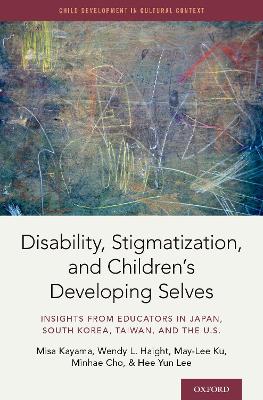Child Development in Cultural Context
1 total work
Disability, Stigmatization, and Children's Developing Selves
by Misa Kayama, Wendy Haight, May-Lee Ku, Minhae Cho, and Hee Yun Lee
Published 19 December 2019
Guided by developmental cultural psychology, this volume focuses on understandings and responses to disability and stigmatization from the perspectives of educators practicing in Japan, South Korea, Taiwan, and the United States. Synthesizing research that spanned over a decade, this volume seeks to understand disabilities in different developmental and cultural contexts.
The research presented in this book found that educators from all four cultural groups expressed strikingly similar concerns about the impact of stigmatization on the emerging cultural self, both with children with disabilities and their typically developing peers, while also describing culturally nuanced socialization goals and practices pertaining to inclusive education. In providing a multicultural view of common challenges in classrooms from around the world, this book provides important
lessons for the improvement of children's lives, as well as the development of theory, policy, and programs that are culturally sensitive and sustainable.
The research presented in this book found that educators from all four cultural groups expressed strikingly similar concerns about the impact of stigmatization on the emerging cultural self, both with children with disabilities and their typically developing peers, while also describing culturally nuanced socialization goals and practices pertaining to inclusive education. In providing a multicultural view of common challenges in classrooms from around the world, this book provides important
lessons for the improvement of children's lives, as well as the development of theory, policy, and programs that are culturally sensitive and sustainable.
